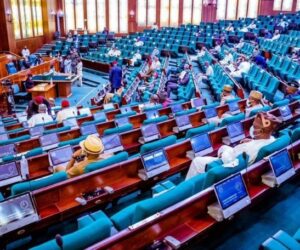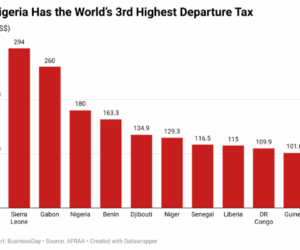In a crucial endorsement of its two-year reform push, Nigeria has been officially removed from the Financial Action Task Force (FATF) Grey List, the global watchlist for deficiencies in anti-money laundering and counter-terrorism financing controls.
The decision, announced Friday at the FATF Plenary in Paris, signals a sovereign inflection point that immediately lowers financial risk and positions the nation to attract greater foreign capital.
The delisting follows a sustained, inter-agency coordination—a ‘call to action’ after being placed on the list in February 2023.
Tayo Aduloju, CEO of the Nigerian Economic Summit Group (NESG), was full of praise for government officials. “Well, first, it’s well done to the CBN, NFIU and EFFC for doing the hard work to get us back into compliance,” Aduloju told BusinessDay.
Read also: FATF exit a vote of confidence in Nigeria’s financial reforms — CBN
Naira gains, sovereign risks drop
The removal provides an immediate, tangible boost to the currency and sovereign financial standing. The grey listing had previously signaled heightened risk, but its removal is a strong endorsement influencing market sentiment.
The naira gained 1 percent in the immediate aftermath.
“It means a whole lot,” said Bismarck Rewane, CEO of Financial Derivatives Company. “Naira and rand have gained almost one percent since the news. It is now N1490 in the parallel market.”
Beyond the daily currency moves, the delisting is expected to improve the nation’s sovereign credit ratings. The rigorous reforms that led to this exit are anticipated to be recognised by global rating agencies, which frequently use FATF status as a key indicator of sovereign risk. Optimistically, analysts say that the country should expect improved sovereign credit ratings.
Read also: Nigeria’s exit from FATF grey list excites Tinubu
Re-engaging the West and boosting FDI
The FATF grey list historically acts as a significant deterrent, introducing complexity and higher compliance costs for international firms. By exiting the list, Nigeria effectively re-opens the door to global capital.
Foreign Direct Investment (FDI) had dropped sharply, falling 70.06 percent quarter-on-quarter to $126.29 million in the first quarter (Q1) 2025. This delisting is expected to reverse that trend, positioning Nigeria as a more trustworthy destination for Western investment.
“This is a big deal because it opens up the country for FDI and engagement from the West, especially,” noted Tayo Oviosu, CEO of fintech giant, Paga.
For global commerce, the reduction in perceived financial risk is crucial. Mark Smithon, a diplomat heading the UK Department of Business and Trade team in Nigeria, highlighted the impact on bilateral relations: “De-listing from the grey list will enable more business to happen and offer renewed confidence to the British High Commission in Nigeria, businesses eager to trade with Nigeria.”
Richard Montgomery, UK High Commissioner to Nigeria, reinforced this, stating that the move reflects strong efforts to implement reforms by Nigeria and opens up new opportunities for trade and investment.
Fintech: Lower costs, faster payments
The fintech sector, reliant on seamless, low-cost cross-border transactions, was disproportionately affected by the heightened compliance burdens. For Nigerian fintech innovators, the delisting is a monumental victory.
Olugbenga Agboola, CEO of Flutterwave, confirmed the immediate benefits. “Flutterwave is Africa’s most licensed non-bank financial institution with 50+ licenses + massive investment in keeping compliance at the highest standards. This grey listing made cross-border payments/settlements harder & more expensive. This delisting restores confidence, lowers remittance & xborder costs, and unlocks faster, cheaper payments to & from Nigeria.”
Ultimately, the delisting translates directly to renewed trust and confidence. The immediate challenge, however, remains translating this compliance into economic wins that citizens can feel.
“As we have said, it’s now translating the hard-won gains into an impact people can feel. Capital flows would be a good sign… hopefully not dampened by ‘election cycle wait and see’ stance,” one analyst said.









